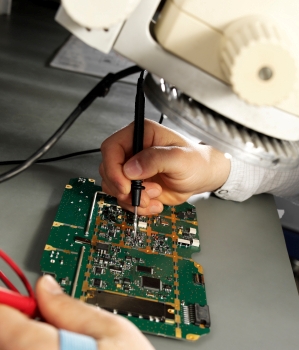 Japanese high-tech companies are shifting supply-sourcing locations from domestic to other Asian countries such as Southeast Asia, results of a survey commissioned by UPS on supply chain trends in Asia’s high-tech industry show.
Japanese high-tech companies are shifting supply-sourcing locations from domestic to other Asian countries such as Southeast Asia, results of a survey commissioned by UPS on supply chain trends in Asia’s high-tech industry show.
The 2011 “Change in the (Supply) Chain” survey disclosed that Japanese companies expect to reduce their domestic supply sourcing by close to half, from 96 percent to 53 percent in the next three to five years, and increase sourcing from mature Asia-Pacific countries such as Thailand, Malaysia, Hong Kong, and Singapore almost threefold, from 9 percent to 24 percent.
There is also a rising trend to source among emerging Asian countries such as the Philippines and Vietnam, a UPS press statement dated December 22, 2011 said.
It also highlights the key factors in the supply chain for Japanese high-tech companies: “costs” and “security risks.”
The telephone survey, conducted from June to July 2011, covered 248 high-tech firms in China, Japan, Singapore, Thailand, India, Malaysia, Philippines, Australia, and New Zealand.
Among the high-tech companies surveyed in Asia, the Japanese were found to be especially cost-conscious, with 68.9 percent selecting “reducing total supply chain costs” as their top priority in the past two years.
“This reveals the intense cost pressures Japanese companies are experiencing, in what is one of the most costly business environments in Asia. Cost is also expected to remain one of the top drivers of change in the supply chain in the next 3 to 5 years,” the statement said.
Besides cost considerations, the Japanese high-tech companies selected “security risk” as the second most important driver of change in their supply chain, with 20 percent of the respondents choosing it as the top driver, and over 60 percent considering it as a top three issue.
“The survey revealed the supply chain issues Japanese high-tech companies are experiencing in the face of globalization and increasing competition from other Asian countries, while supply chains are becoming increasingly more complicated due to supply sourcing diversity,” said Masato Umeno, president of UPS Japan.




